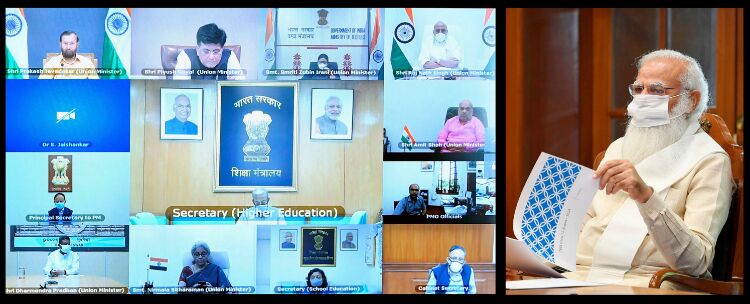More efficacious framework
The confusion around Board exams laid bare the inefficacy of the current regulatory mechanism for school education — calling for a more professional stance

Adverse times allow us to review and reform. Those who are quick to respond with firm decisions often succeed. Decision-makers who make their way to the top through working at the grassroots level understand the pulse of the people and, most naturally, take most egalitarian decisions. This is what distinguishes a statesman from a politician. The decision of Prime Minister Narendra Modi to cancel the CBSE Board exams, 2021 is one such decision. He is a real statesman.
The issue is now settled. There will be no Board exams class 10 and 12 CBSE students. There are more than sixty school boards across the country and they will decide on their own. It's time to review, learn from the experiences, decide on a firm course of action, and march forward. Prime Minister announced the cancellation of Class 12 Board Exams on June 1. Earlier, Minister for Education, Ramesh Pokhriyal Nishank, had announced last year on December 31 that the Board exams will be held between May 4 to June 14, 2021. The Class 10 Board exam was already cancelled by the PM on April 16, 2021, with a direction to review the situation to make further announcements. The Minister had said that he will make the announcement on June 1, and also give students at least 15 days to prepare for the exams. The PM called a review meeting on June 1, apparently because the Supreme Court was to hear a petition filed by some students and parents for cancellation of the Board exams, and the minister Nishank was indisposed and unavailable to take a decision. It is important to consider the timeliness of the decision as it impacted millions of examinees as well as their family members who were put under tremendous pressure and anxiety. If we look at the media debates and feedback on social media, the most frequently made comment was that students are under pressure because of the tentativeness about exams dates. The whole process has taken five months and many interventions by the PM and Hon'ble Courts were made in the meantime. We are indeed passing through unprecedented times, but we need to analyse the situation and make some long-term decisions. The COVID-19 pandemic will pass by, but we should learn from this situation and be prepared for any such pandemic in the future.
The most important reason for which the decision was required was that the students had waited extraordinarily long. The uncertainty over exams had to be settled as the anxiety level was rising beyond control. Students knew that CBSE Board exams start conventionally in the first week of March but the process was delayed this year. The clock started clicking on December 31. The clock was readjusted on April 16. The age group appearing for the 12 Board comprises adolescents who are known to be the most volatile. Various state governments had been making very irresponsible statements and demands and some also taking damaging decisions with regard to the method of assessment, which had to be countered. This should normally have been the job of the Board but, unfortunately, owing to the Board's silence, the PM had to intervene to decide on the assessment and certification of less than fifteen lakh students.
The PM, a day after deciding on the cancellation of the CBSE Board exams, met the students and the parents, albeit online. He has been addressing the examinees of the Board exams during the last four years through his 'Pareeksha Pe Charcha'. One needs to ponder over why the PM had to do it? Is this not the job of the Board? As teachers, we remain in our rooms before students go for their exams to meet the inquisitive students for answering their queries and pacifying students suffering from anxiety. The Board is an administrative unit and, perhaps, could not gauge the gravity of the situation. The PM could have consulted the experts in school education, and most importantly, the school principals to get their views on it. The colonial government had converted our beautiful system of education into an administrative setup. The teacher was pushed to the periphery. This is the time we consider revamping the school regulatory system into a vidya parampara by setting up a regulatory body that is more academic in nature and understands pedagogy as well as academic administration.
So, what's the lesson? The pandemic has made it clear that only doctors can have solutions to health issues. The lesson that we must learn from the Board exam confusion is that the pedagogues and the school principals must have the first say. The present regulatory mechanism for school education is definitely not appropriate to keep deciding on schooling and issues related to it. Yes, 'Prime Minister' and the 'Court jesters' will strive to keep controlling the ears of the King. Every good suggestion must not be seen as 'anti-establishment'. The intelligence of the King is in breaking the ring around him and hearing the whispers. We need an autonomous regulatory body (a prototype of UGC for school education) to decide on the issues of curriculum, teaching-learning, assessment and certification. It's high time we realise schooling is a professional job which must be left to professionals. If we had established a School Education Commission we would not have been in this situation of confusion despite the pandemic, perhaps.
The writer is a Professor of Education at the School of Education, IGNOU. Views expressed are personal



